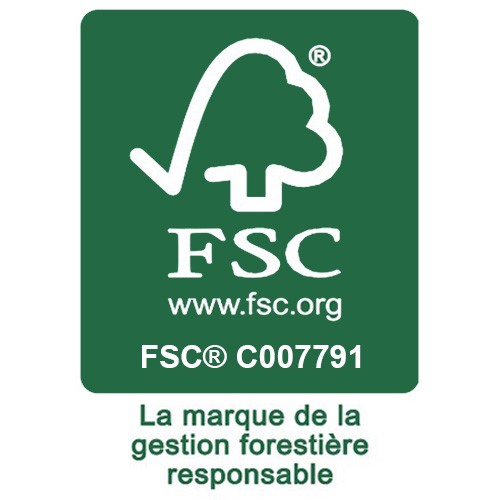Cork, a responsible choice
Cork is a100% natural, biodegradable and recyclable product that helps preserve our planet.
It is the most environmentally-friendly and sustainable closure method, compared with factory-made corks, whose manufacture consumes four times as much energy as natural corks.
No forests destroyed for its manufacture, since the cork oaks are not felled during harvesting. On the contrary, it’s thanks to the production of cork stoppers that the cork oaks continue to exist. We simply remove part of their bark every 9 years, and this bark regenerates naturally.
> See our manufacturing process
When the bark is stripped from a cork oak, it is said to be “unmasked”, greatly multiplying its capacity to absorb CO2. A harvested tree absorbs 2.5 to 4 times more CO2 than an unharvested tree, making a significant contribution to the fight against climate change.
Every year, Mediterranean cork oak forests absorb 14 million tonnes of CO2, equivalent to the annual emissions of 1.5 million cars.
The choice of cork is therefore fully in line with a responsible approach to preserving our planet.
Bouchons Trescases is FSC(Forest Stewarship Council) certified.

Since 2009, our corks have been FSC-certified, proof of our commitment to protecting the environment and the raw material that makes your wine unique.
The FSC label was founded by an NGO following the Rio Earth Summit in 1993. Our mission: to protect the earth’s lungs and promote demanding, high-performance, independent certification.
Trescases corks are sourced from FSC forests, guaranteeing production that respects the environment and human beings.
Here are the 10 FSC rules and principles:
- Compliance with the law
Forest management must comply with all applicable laws and international treaties.
- Workers’ rights and working conditions
Respect the fundamental conventions of theInternational LabourOrganization (ILO) and preserve or enhance the social and economic well-being of workers.
- Indigenous peoples’ rights
Support the rights of indigenous peoples as defined in the United Nations Declaration on the Rights of Indigenous Peoples (2007) and ILO Convention 169 (1989).
- Community relations
Maintain or improve the long-term social and economic well-being of local communities.
- Benefits generated by the forest
Encourage efficient use of the forest’s multiple products and services to ensure economic viability and a wide range of environmental and social services.
- Environmental values and impacts
Forest management must maintain biological diversity and the associated ecosystem values and services (water resources, soils, landscape, heritage species and habitats, etc.).
- Management planning
A management document must be drawn up, implemented and updated. Long-term management objectives and the means of achieving them must be clearly indicated. The management document is drawn up and revised in consultation with stakeholders.
- Monitoring and assessment
Monitoring is carried out to assess management practices: quality and quantity of forest products, maintenance of conservation values (environmental or socio-cultural).
- High conservation values
The certified organization must identify, assess, preserve and monitor the High Conservation Values (HCVs) present in its management unit. These HCVs may concern heritage species or habitats, critical ecosystem services, cultural sites, etc. For more information on HCVs, visit our dedicated page.
- Implementation of management activities
The environmental and social values of the forest are protected when timber or other forest products are harvested, when work is carried out (planting, invasive species control, road building, etc.) or when inputs are used (fertilizers, regulated pesticides). The certified organization does not use any GMOs.
Our commitments
At Bouchons Trescases, we are constantly working to reduce our environmental impact.
In 2007, our company carried out a Bilan Carbone assessment to measure the emissions generated by each of our activities. This assessment enabled us to identify possible areas for improvement in order to implement more environmentally-friendly production processes. As a result, Bouchons Trescases’ carbon footprint is the lowest of all corking solutions for still wines, thanks to our exemplary process control at our Le Boulou site.
The concrete actions we take enable us to continuously optimize the environmental footprint of all our activities:
- All waste from our plant is sorted, including cardboard, plastics, empty plastic drums and pallets. Our company is recording a -22. 5% reduction in waste between 2012 and 2022.
- We aim to minimize our water consumption as much as possible during the production cycle.
- For the production of natural corks, the house does not emit volatile organic compounds.
- We encourage selective sorting in our employees’ offices.
- Our employees are made aware of the challenges of sustainable development, particularly in terms of waste sorting.
- Since 2010, we have been installing photovoltaic solar panels.
- Caps rejected during our manufacturing process are passed on to a plant for use in other high-value-added applications, such as insulation.
- We are constantly striving to optimize our manufacturing process in order to reduce energy consumption and waste production.
The company also offers FSC® corks as an option.
Our ambitions
We are currently updating our carbon footprint, with the data collection phase nearing completion. Between now and January/February, we plan to present the results obtained, as well as our climate action plan for 2030.
Do your bit for the planet ,
give corks a second life
There are numerous collection points throughout France.
By clicking on this link and entering your town or zip code you will find the different collection points: https://recyclage.planeteliege.com/